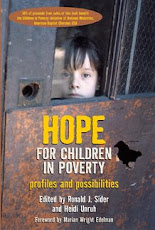Sebastian Ridley-Thomas, a 2009 graduate of Morehouse College made a commitment to serve as an intern with National Ministries American Baptist Churches USA at the Children’s Defense Fund (CDF) in Washington, D.C. The focus of his assignment was two fold:
- Participation in the CDF Freedom School Program Training to assess how National Ministries might encourage more American Baptist Churches to host 10 week Freedom Schools in their communities, and:
- Research and analysis of the CDF model of advocacy and engagement of children’s issues and see where communities of faith can amplify and sustain our witness for children.
Both of these assignments related specifically to Children in poverty.
Read and respond to his reflections.
“Though National Ministries and the Children’s Defense Fund work on behalf of all children—it is those stuck in what C. Eric Lincoln and Lawrence Mamiya called “the crisis sector” that received particular attention during my internship. Poverty is a leading indicator of crisis position.
My orientation to this work came at the Ella Baker Child Policy Institute’s Freedom Schools National Training in
The experience at the training was inspirational. It motivated me to renew my commitment to service. I witnessed positive transformation and likely the best preparation for social change agents in the country. Over a thousand educated, predominately African American youth supported by a wide range of socially responsible institutions spent a week at the Alex Haley Farm working through the basics of classroom management, social empowerment and civic engagement exercises on behalf of children.
Team building exercises and large group lectures were the first activities to which interns were exposed. Then, first year servant leader interns -- as the student teachers are titled -- concentrated on the implementation of educational objectives. They first became familiar with their materials and second, modeled their lessons with each other. The interns were critiqued and coached through their presentations, by specialized CDF youth leadership development trainers. By the end of the week, previously introverted persons were in full instructional effect. They looked like trained educators. They were intense, funny, compassionate and thorough.
Returning interns were given enhanced versions of team building and lesson development exercises. They were—depending on the grade level with which they work—connecting the literature to pertinent social concerns and issues that affect children. Site coordinators—adult supervisors of the interns during their summer work—were briefed on managing their sites and connecting their respective communities to local issues and potential partners. The CDF utilized its national staff to educate all groups on policy initiatives and updates that are germane to child advocacy issues.
The success of the Freedom Schools model is due in part to the recruitment of new interns and the participation of returning interns. A cycle of recruitment and reinforcement is equipping a corps of transformative leaders for any context. It was reassuring to know that the work of education and social justice is being addressed by an empowered group of my peers.
Freedom Schools are the most substantial link this generation has to the mass action initiatives of the American Civil Rights Movement. The expansion of the Freedom Schools program—from a summer intensive program to a full year afterschool literacy enrichment agenda—will be a significant part of our nation re-engaging the needs of children and ultimately preparing them for fuller, better developed lives.”
Questions:
What do you think it will take for you to renew your commitment to children in poverty?
What do you think are the benefits of youth training youth?

1 comment:
Post a Comment